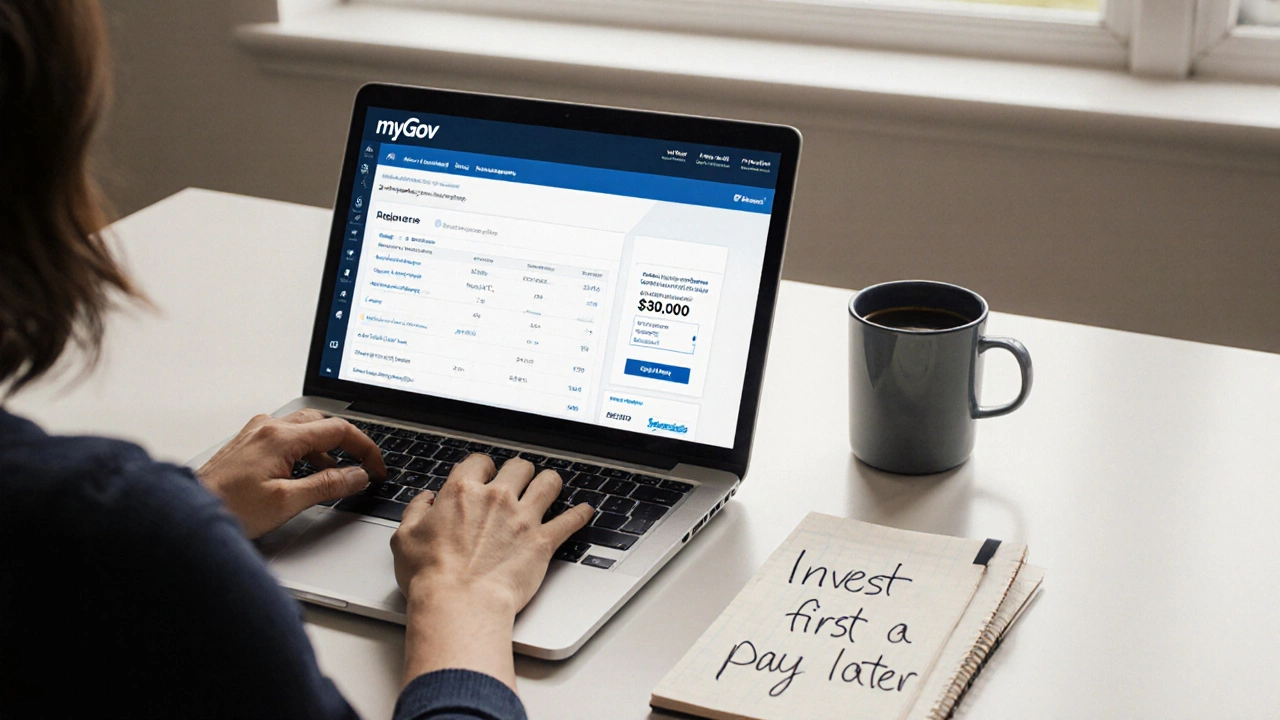Picture this: you spot your dream house, the porch just big enough for lazy Sundays, and suddenly remember you’re still dragging around that $40,000 student loan like a second shadow. Does that debt actually slam the door on homeownership? Well, you’re not alone in wondering. More than 43 million Americans have federal student debt, so if you think you’re carrying a financial ball and chain, you’re in large company. And over the past decade, first-time home buying has slowed, with experts linking a big chunk of that to student loans. But is the connection as brutal as it seems? Or is it just another money myth that’s stretched a little too far? Let’s pull back the curtain and see how student loans really play into the house-buying game.
Untangling Student Loans and Your Mortgage Chances
The big question: does a student loan kill your shot at that white picket fence? Not exactly. Most lenders won’t instantly reject you because you’ve got student loans. Lenders look at something called your debt-to-income ratio (DTI)—basically, how much you owe versus how much you make each month. If you’re earning decent cash and your other debts are minor, student loans might not cause much trouble at all. Say you earn $5,000 per month and owe $500 for your loan and $200 for a car. A lender will sum up all your monthly debt payments and compare them to your earnings. If your total debt payments are about 36% or less of your monthly gross income, you’re living in the mortgage comfort zone.
But things can get dicey if student loans eat up a big bite of your income. If your student loan payments nudge you over that 43% DTI threshold (which is the ceiling for most lenders—though a few may stretch a bit for the right borrower), expect trouble. Banks see that ratio and worry you’ll struggle juggling a mortgage plus your current bills. According to the Federal Reserve’s 2024 data, student loans nudge the DTI of young buyers up by an average of 7%, which can be the tipping point between yes and no on a mortgage app. In real numbers, that can drop the loan amount you qualify for by $25,000, or more in pricey cities.
Your credit score is the next hurdle. Student loans can actually help your credit if you pay on time, since they’re considered installment loans, and on-time payments build a positive credit history. But a single missed payment? That’ll haunt your score for up to seven years. Most lenders want to see a score above 620, but the best rates go to folks sitting at 740 or higher. Pro tip: set up automated payments so you don’t forget. It’s boring advice, but it saves you a world of pain on your credit report. If you’re in a weird spot—like if your loans are in forbearance or deferred—not all lenders treat those the same. Some will count 0.5% to 1% of your total loan amount as a monthly payment, even if you aren’t paying right now, so your DTI might look higher on paper than it does in real life.
Let’s look at the numbers. Here’s what a typical DTI calculation might look like for someone with student debt:
| Monthly Income (gross) | $5,000 |
|---|---|
| Student Loan Payment | $400 |
| Car Payment | $200 |
| Other Debt Payments | $100 |
| Total Monthly Debt | $700 |
| DTI Ratio | 14% |
With those numbers, you’re well beneath the red line—banks will usually greenlight your mortgage app if the rest of your file looks good.
So, is it possible to buy a home with student debt? Absolutely. But your chances shrink if your loans are huge and your income’s just scraping by. It’s not the loan itself, but how big the payments are, that makes the real difference. Adults under 35 now carry an average student loan balance of $33,173, but plenty still make it work with clever budgeting or extra side hustles to boost their cash flow.

Tips for Buying With Student Debt Hanging Over Your Head
If you’re stuck thinking, “There’s no way I can buy with my loans,” don’t lose hope. The biggest thing banks care about is your ability to repay. You’ll need to show you’re managing debt responsibly and have enough left over to cover housing costs. Here are some strategies to tilt the odds in your favor:
- Refinance your student loans: If your interest rates are sky high, refinancing can slash your monthly payments and DTI. Just be careful—federal loans come with perks (like forgiveness and forbearance options) you lose if you refinance with a private lender.
- Get on an income-driven repayment plan: For federal loans, these plans cap your payment at a percentage of your income. If you’re struggling, move to a plan that shrinks your payment. Lower payment = better DTI.
- Pay down debt aggressively before applying: If you have a bit of extra cash, whittle away at other debts—like credit cards or expensive personal loans—so your DTI falls below that magic 36% barrier.
- Check your credit: Use free tools from your bank or apps to spot errors or catch missed payments. Fixing a $50 error can bump your score by dozens of points.
- Try for first-time buyer programs: FHA, USDA, and VA loans are often more forgiving with DTI ratios and allow down payments as low as 3%. Even if your student loans loom large, you might still get approved through these programs.
- Pad your down payment: The more you put down, the less you need to borrow. If you can swing 20%, you’ll also dodge private mortgage insurance (PMI), which can cost $50–$200 a month on average.
- Bring in a co-borrower: If your partner or spouse has less debt and a solid income, apply together. Lenders will use both incomes, and you might qualify for a bigger loan than you could solo.
- Delay a purchase and increase your income: Even six months can make a difference if you use that time to snag a promotion or start a profitable side gig. More income drops your DTI fast.
Of course, some places are easier for buyers with student loans than others. Median home prices range a lot—from $204,000 in Decatur, Illinois up to a whopping $1.3 million in San Jose, California, so where you live matters. If market forces are working against you, patience is your best weapon. Waiting a year or two to buy can let you pay down enough debt to qualify for a better mortgage, especially if home prices cool off.
One quirky fact: Some lenders will ignore student loan debt entirely if you can prove you’ve got 10 or fewer monthly payments remaining. So if you’re almost at the finish line with your loans, timing your home purchase could save you a big headache.

Smart Homebuying Moves for People With Student Loans
If you’re itching to stop renting and start building equity, here’s how to play the long game—and a few twists most people miss.
- Keep your eyes on the monthly payment, not just the purchase price: With student loans eating away at your budget, make sure you’re comfortable with what you’ll owe each month on your mortgage. Include taxes, insurance, and HOA fees if they apply.
- Don’t drain your savings for a down payment: You’ll need extra cash for repairs, moving costs, and even an emergency fund. Lenders like to see you’ve got money left after closing.
- Document everything: Keep records of your loan payments, pay stubs, and bank statements. Lenders can ask for proof that you’re paying down debt responsibly, especially with new rules on verifying student loan status.
- Think about future expenses: If your student loans will go up after a temporary repayment break or your partner has similar debt, factor those bumps in. Don’t base decisions on your lowest possible monthly expense.
- Shop lenders: Not every bank weighs student debt the same. Credit unions, local banks, and online lenders might be more flexible. Get quotes from several to find one that gives you the best terms.
- Ask about loan forgiveness: If you’re a teacher, healthcare worker, or in public service, you may qualify for programs that erase your remaining student debt after 10 years. If that’s you, make sure your lender knows—it could improve your file.
- Stick to your budget: Just because a bank approves you for a certain amount doesn’t mean you should max out. With student loans in the mix, you want a cushion for when life gets messy.
Here’s a quick look at average student loan balances and how that shakes out for buyers in different states, based on the latest 2025 numbers:
| State | Average Student Loan Balance | Median Home Price |
|---|---|---|
| California | $37,084 | $796,700 |
| Texas | $32,050 | $302,650 |
| Florida | $34,495 | $419,641 |
| Ohio | $29,867 | $210,800 |
If you’re buying in a pricey market and carrying higher-than-average debt, maybe take your time or consider buying a starter home in a more affordable city. And if you’re loaded with federal loans, keep an eye on Congress—there are whispers every year about forgiveness programs, but nothing is guaranteed until a law actually passes.
No two buyers have exactly the same debt-to-income profile or home buying timeline, so personal finance isn’t one-size-fits-all. But if one thing’s clear, it’s this: having student loans changes your home-buying game plan, but it doesn’t lock you out of the market. A little creativity—plus a solid look at your actual numbers—can make the difference between dreaming about houses and actually opening your own front door.








